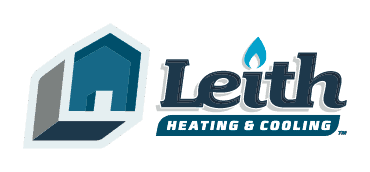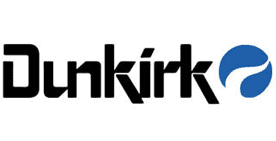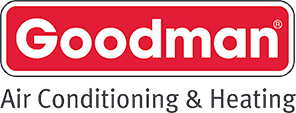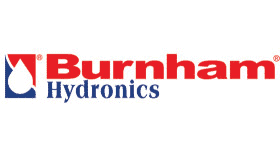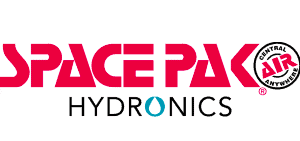Many homeowners expect water heaters, washing machines, and other appliances to be a risk for leaks. But probably don’t expect to see your furnace leaking water in winter. Why would any part of the heating system produce water, and what can you do when water pools around your furnace?
If your furnace leaks water in the Elgin, IL, area, call furnace repair by Leith Heating & Cooling. While you wait for a professional repair technician to arrive, learn more about what you can do to prevent water damage or damage to your furnace.
What Is the Water Leaking from My Furnace?
The water leaking from the furnace is condensation. Your furnace generates heated water vapor. When that water vapor encounters a cold surface or cold air, it can condense out of the air and become liquid. If the heating system does not handle the water properly, it could drip or pour onto the area around the furnace.
Where Is the Condensation Coming From?
Your furnace works by heating air and distributing it around your home. Furnaces have humidifiers to add moisture to the air, so it does not become uncomfortably dry. If warm moist air comes into contact with a cold surface, such as cold pipes, the moisture can drip from the surface of the ductwork.
Your central heating or HVAC system will let that water drain safely out of your home. If something disrupts the flow of that water, it could wind up someplace it is not supposed to be. Many parts of the system could produce leaks if they do not work properly.
The Condensate Pump
If your furnace sits in a basement, condensation might not naturally flow downward out of your home. The condensate pump pushes the water outside. If it breaks or loses power, the water will back up and spill onto the floor.
If your furnace pump plugs into a ground fault interruption (GFI) outlet, humidity in the furnace room could cause the outlet to cut power to the pump.
The Flue Pipe
The flue pipe allows the toxic fumes that gas furnaces produce to dissipate into the atmosphere. Like the ductwork in an HVAC system, the flue pipe carries hot air and can become cold, a recipe for condensation.
If the flue pipe is cold during winter, condensation can form on the inside of the flue pipe. Faulty installation of the flue pipe could cause condensation to leak from the furnace.
A rusty flue pipe can also leak if a hole allows rainwater or melting snow to enter the heating system, which is one reason for your furnace leaking water in winter.
The Humidifier
The humidifier is a crucial part of the system if you want to avoid dry skin and nasal passages. However, a fault in the humidifier could cause it to leak water. Replacing the humidifier or repairing the connection between the humidifier and the water supply could fix the problem.
The Secondary Heat Exchanger
The heat exchanger allows the heat from flue gases (which should not mix with air inside the home) to spread to clean air that circulates through the home’s ductwork.
A high-efficiency furnace has a secondary heat exchanger that extracts heat from flue gases after they pass through the primary heat exchanger. The flue gases lose heat when they go through the secondary heat exchanger, which can cause water to condense out of the gases, as they do in the flue pipe.
What To Do About the Leaking Water
The first thing to do about the leaking water is to identify the source and prevent the water from damaging drywall, wooden floors, or carpeting. For example, if water overflows from the condensate pump, you could put a bucket underneath it to prevent it from spilling onto the floor.
If the water contacts electrical equipment or wiring, reduce the risk of electric shock by cutting power to the affected circuits before cleaning up the water.
Once you contain the water leak, dry out your furnace room and any other rooms the water might have spread to. Let any waterlogged possessions dry out, use fans to increase airflow, and use a bleach solution or vinegar to sanitize water-damaged areas and prevent mold and bacteria growth.
What To Do About the Underlying Problem
The long-term solution to the problem depends on the questions “Where did the water come from?” and “why is your furnace leaking water in winter?”
If the condensate backs up because of a clogged drain line or a frozen pipe, call a professional to fix the pipe and restore normal water flow. Replacing the condensate drain pan, repairing the condensate drain line, or fixing a clog further down in your plumbing system could solve the issue.
The best way to fix the flue pipe depends on the leak’s location. If rainwater is getting in, roof repair and repair of the section of pipe above the roof line might be necessary. The repair technician should inspect the length of the pipe to look for any flaws or corrosion that could still be a safety concern even after the technician fixes the leak.
Damage to the secondary heat exchanger can be expensive to fix and release dangerous fumes. You might have to replace your furnace if your furnace leak is due to a leak from the secondary heat exchanger.
Can I Fix a Furnace Water Leak Myself?
In most cases, fixing a furnace water leak as a DIY project carries substantial risk unless you have considerable experience with furnace repair, water damage remediation, plumbing, and other home repairs. A furnace water leak is a potentially serious problem that could lead to more repairs and repeated leaks.
As you decide whether to call a professional, keep the following considerations in mind:
- Simply preventing the visible signs of leaking water does not mean water is not leaking elsewhere, out of view.
- Fixing the water leak does not mean that your furnace is operating safely.
- After you stop the water leak, you will still have to contend with the threats of rot and mold.
- The problems that contributed to the furnace leak might have damaged other parts of the HVAC system.
If you call a technician to fix your furnace, take note of when you first noticed the leak, where the water seems to come from, and any changes in the behavior of your furnace. Any information you provide can expedite the repair and increase the likelihood of a correct diagnosis. Ask your repair technician to do a comprehensive inspection, rather than simply focusing on the component they believe to be the cause of the furnace leak.
Fix Furnace Leaks Fast With Leith Heating & Cooling
Your furnace water leak could be a simple problem or a more extensive maintenance or repair issue. A technician with years of experience in furnace repair will be able to fix the problem quickly and keep it from recurring. If you have a furnace leak or any other HVAC problem in the Leith Heating & Cooling service area, which includes Elgin, IL, we’re the best choice.
Don’t let a leaking heat pump, conventional furnace, or air conditioner put your home at risk. Call Leith Heating & Cooling at 847-565-1568 to discuss the most common reasons why your furnace might be leaking water. Then schedule a service appointment to get your furnace back in the best working order.
We also repair heat pumps. We will send a qualified technician to prevent further property damage when you find your furnace leaking water in winter.
